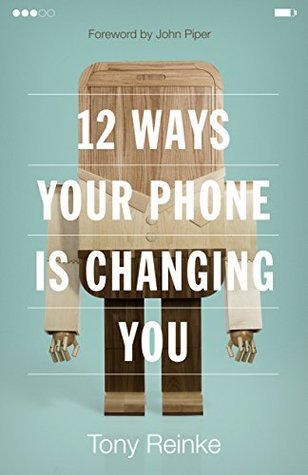More on this book
Community
Kindle Notes & Highlights
Time named the iPhone the single most influential gadget of all time, saying that it “fundamentally changed our relationship to computing and information—a change likely to have repercussions for decades to come.”4
They tell us what to do and, more significantly, what to want to do. There is a current in the stream, and if we don’t know how to swim, we shall be carried by it. I see someone doing something and I want to do it, too. Then I forget whatever it was that I thought I wanted to do.”
“This generation has the unique task assigned it of discerning what the new media are really good for, and that means, also, what they are not good for. If they fluff it, generations after them will pay the price.”10
The question of this book is simple: What is the best use of my smartphone in the flourishing of my life?
O’Donovan is exactly right when he says that our temptation is to watch someone doing something and then merely to copy the behavior and lose sight of our personal callings and life goals.
What technologies serve my aims? And what are my goals in the first place? Without clear answers here, we can make no progress in thinking through the pros and cons of smartphones as Christians.
My aim is to explore why you would consider such actions in the first place.
Not many of you should become authors, for we who write books of ethics are held to our words more strictly than anyone.
We grab our phones as content creators or content consumers, and we focus on timeless content or timely content.
our smartphone relationships trend in certain directions: as part of virtual communities or as complements to our face-to-face relationships.
“Be harsh with yourself at times.”14 Sometimes. Not always. At certain key moments in life, lean into the bathroom mirror, squint your eyes, and project pessimism at the person you see. We all need healthy critique. But if you are only harsh with yourself, let me speak a word of caution. This book fails if, having read it, you only hate yourself more; it succeeds only if you enjoy Christ more.
I pray that this book educates and equips you to enjoy freedom in life to taste deeper the infinite joy we have in Christ, leaving mediocre indulgences behind for deeper and more satisfying pleasures ahead.
And self-critical conversations about our personal behaviors require a big dose of humility.
If we must give an account of every idle word, we are probably the first generation that can truly appreciate the volume of our idle words, since we have published more of them than any group in human history.
In the ancient Mirror of Erised, you see the deepest longings of your heart revealed in vivid color. Our shiny smartphone screens do the same.
Too often what my phone exposes in me is not the holy desires of what I know I should want, not even what I think I want, and especially not what I want you to think I want. My phone screen divulges in razor-sharp pixels what my heart really wants.22
This means that whatever happens on my smartphone, especially under the guise of anonymity, is the true exposé of my heart, reflected in full-color pixels back into my eyes.


